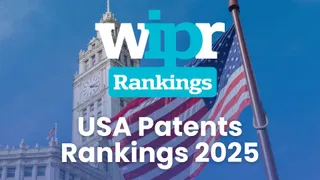
How to end the abuse of litigation in SEP licensing
In recent decades, the value of intangible assets has consistently increased. In particular, IP rights came to be the engine of the knowledge economy, by incentivising the development of breakthrough technologies. In addition, IP rights themselves became a discrete and quantifiable business as companies leveraged their value via IP sales and licences.
Already registered?
Login to your account
If you don't have a login or your access has expired, you will need to purchase a subscription to gain access to this article, including all our online content.
For more information on individual annual subscriptions for full paid access and corporate subscription options please contact us.
To request a FREE 2-week trial subscription, please signup.
NOTE - this can take up to 48hrs to be approved.
For multi-user price options, or to check if your company has an existing subscription that we can add you to for FREE, please email Adrian Tapping at atapping@newtonmedia.co.uk

